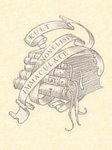I really don't like to hear that your book has been professionally edited. For me, it's not the persuasive piece of information you think it is. You think it says "my book is polished and ready to go."What I infer is "your book was polished by someone else and god help us when we get to the edit letter from the editor, and you don't know how to do this stuff"Freelance editors tell you a book needs to be edited before agents will look at it. What they are doing is selling their services. Only one of my clients employed an editor and that was for non-fiction.All my novelists write, revise, and edit their own books.
I've seen professional editing work out for people. The way I've seen it work is via a teacher-student relationship with easy access to those services (aka not so many clients that the freelance editor doesn't have time for your project) and with money available to go over the work again if necessary.
Ideally the freelance editor should include notes on (generally) what was done and why. Even better is if there's an ongoing discussion so that the writer learns how to do the editing themselves. Then, if there's a sale and a call for further editing (and I can almost guarantee there will be a call for more editing in the case of a novel!) the writer has access to this same freelance editor (for stylistic continuity since that style in part is what sold the book--see how this becomes really important to have and be able to afford an ongoing relationship?) and they can work together (the freelance editor continuing to teach as they go) to get those changes sent back promptly to the purchasing editor.
Being on deadline in this situation would be incredibly stressful for me. I would be at the mercy of the freelance editor's schedule. Ack, I say, ack!
But wait, there's more. This freelance editor/writer relationship isn't a trivial thing. The freelance editor needs to have some sort of motivation to teach the writer to not need them anymore. So in comes the deeper reason for why I feel it's ideal to hire a writing teacher who does editing on the side--because the reputation for the teaching services will help bring new clients in the form of students, counter-balancing the fact that eventually the freelance editor's services won't be needed anymore if s/he is doing their teaching job right. If there's no motivation to teach clients to fly, there's every reason for a freelance editor to keep clients dependent.
I don't think it's wise to become dependent on a freelance editor unless you're the sort of person who relies on a kind of ghost-writer relationship in the first place: basically your primary marketing angle is that you're a celebrity or expert and the writing is just a means of delivering something of interest to an existing audience. That's why the mention of the non-fiction sale makes so much sense to me. If you're a novelist, it really is best to learn the craft. If you have the money, get lots of quality instruction and make that the priority over freelance editing. With high-quality instruction you can accelerate the learning process all writers go through, and maybe even avoid some classic writing errors in the process.
Don't expect that if you get a freelance editor to do a once-over that suddenly your manuscript will be sellable, and even if it is, that the sale is followed by a happily ever after. It can turn out to be just the opposite. If you get a multi-book deal, only of which the first book has been written, and you leaned heavily on professional editing, you can expect that part of your advance will be spent on purchasing ongoing services. Considering the cost per page of editing and the state of advances, this may eat your entire advance.
Not the way I would hope to spend an advance, should I be offered one. But that just may be me.






